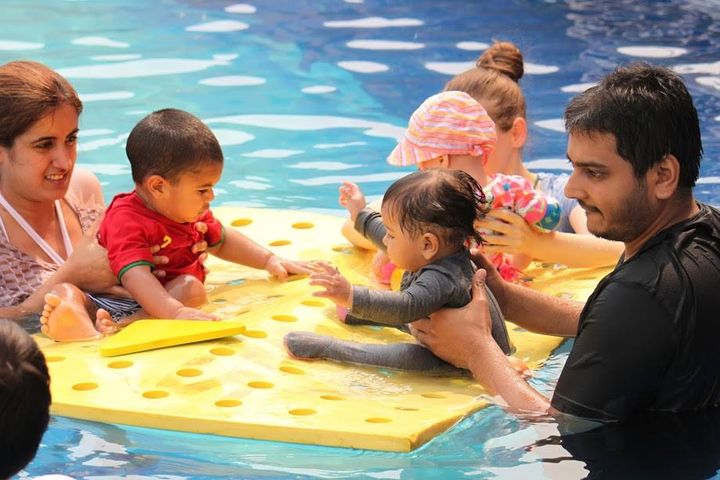THE SURPRISING COGNITIVE IMPACT OF SWIM EDUCATION

While the physical advantages of swimming are well-known, another equally important but less well-known benefit of this life skill is its impact on the mind. We learn how swimming can improve mental clarity in addition to physical health as we explore the unexpected cognitive advantages of swimming instruction.
- Improved Memory and Learning:
Learning to swim requires mastery of a variety of strokes and motions, which strengthens the link between the mind and body. The brain is uniquely engaged when learning and remembering precise strokes, breathing patterns, and safety procedures. Outside of the pool, this cognitive stimulation can result in better memory and learning capacities.
- Enhanced Cognitive Development in Kids:
The effects of swim instruction on kids are very significant. Early swimming experience has been found to have a good impact on cognitive development. Physical activity and the requirement to obey rules in an organized setting help to enhance cognitive abilities such as spatial awareness, problem-solving, and attention.
- Reduction of Stress and Improvement of Mental Health:
It is well known that swimming effectively reduces stress. When paired with deliberate breathing, swimming’s rhythmic quality promotes relaxation. The function of the brain is directly impacted by this decrease in stress. Reduced stress is linked to better decision-making, increased focus, and a more upbeat attitude on life.
- Enhanced Neuroplasticity:
The brain’s capacity to rearrange itself through the creation of new neural connections is known as neuroplasticity. Swimming requires sophisticated motor abilities, which activate different brain regions and encourage neuroplasticity. This ability to adapt is essential for preserving cognitive function over the course of a person’s life and may even help prevent age-related cognitive decline.
- Enhanced Executive Functions:
Planning, organizing, and multitasking are examples of executive functions that are necessary for day-to-day living. Learning to swim forces people to coordinate several actions at once, which helps people’s executive functions grow. Swimmers may see improvements in their capacity to manage their time, be more organized, and perform difficult tasks with ease with time.
Conclusion:
The benefits of swim instruction on the cardiovascular and muscular systems are well-known, but its influence on cognitive performance is a useful and rather surprising side effect. Beyond just improving memory and learning, swim instruction also promotes neuroplasticity, lowers stress levels, and other positive cognitive effects. The psychological benefits of swimming instruction are a compelling argument to immerse yourself in the field, regardless of when you’re teaching your child to swim or if you’re learning it later in life. Thus, the next time you dive in, keep in mind that you’re not only working out your body but also revitalizing your mind.
